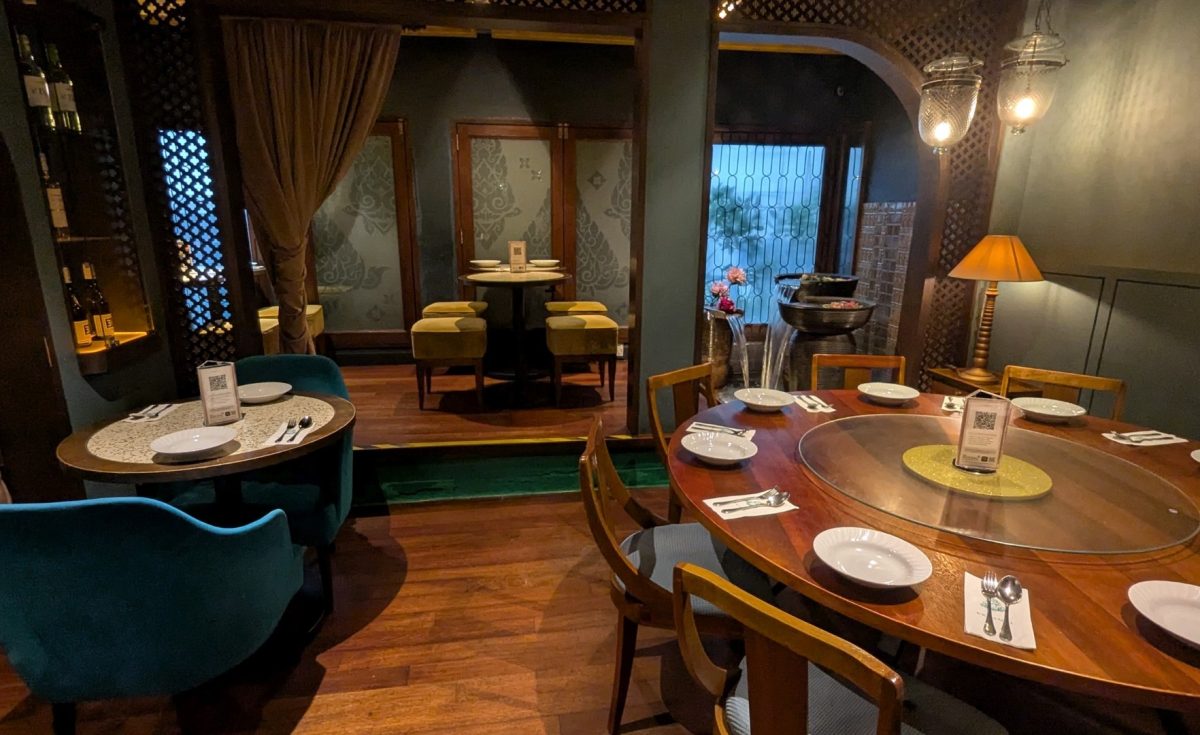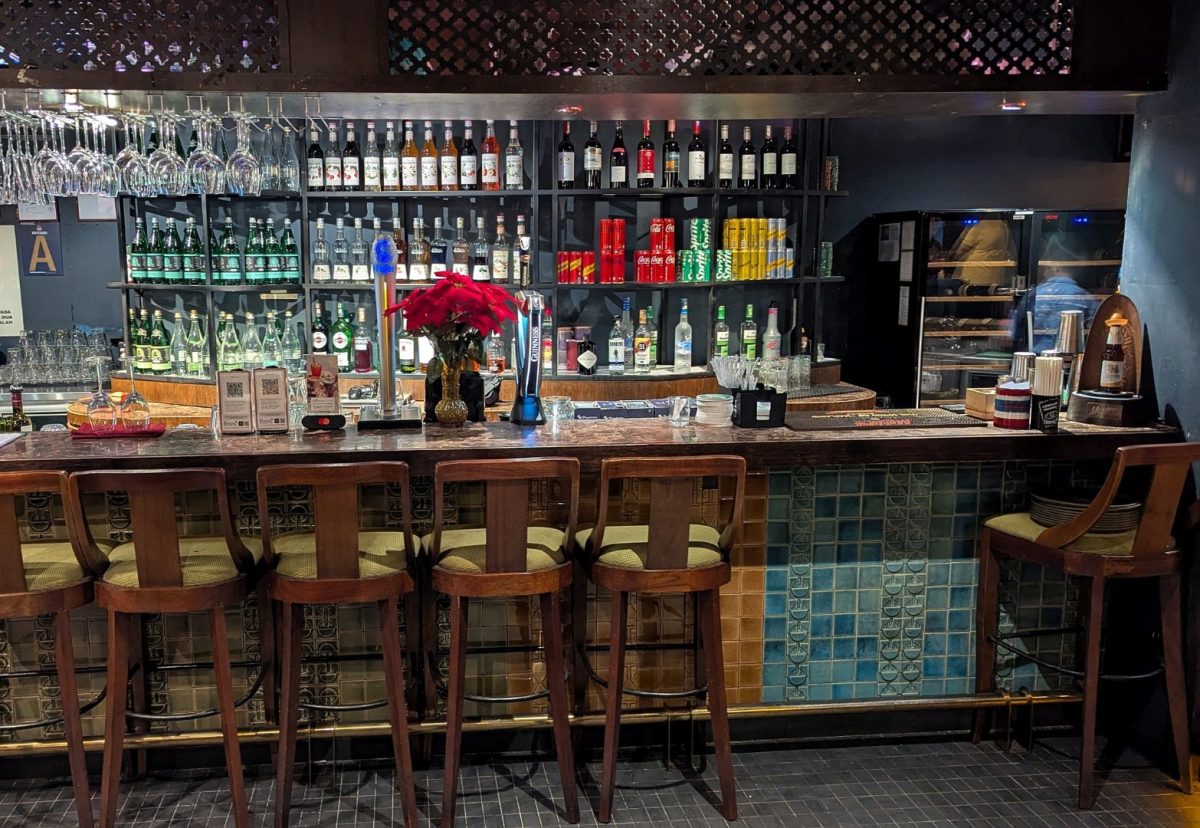Clean, Green, and Guilt-Free: A Taste of Penang’s Healthy Café Scene
May 19th, 2025
Located in the appealing enclave of Plaza Batai, home to a range of shops, dining outlets, and bars, Ekkamai Thai Kitchen, part of The Social group of restaurants, has endured for years, consistently serving up a range of delicious, authentic, and beautifully presented Thai fare. We recently dropped by to enjoy some of their dishes and friendly service.

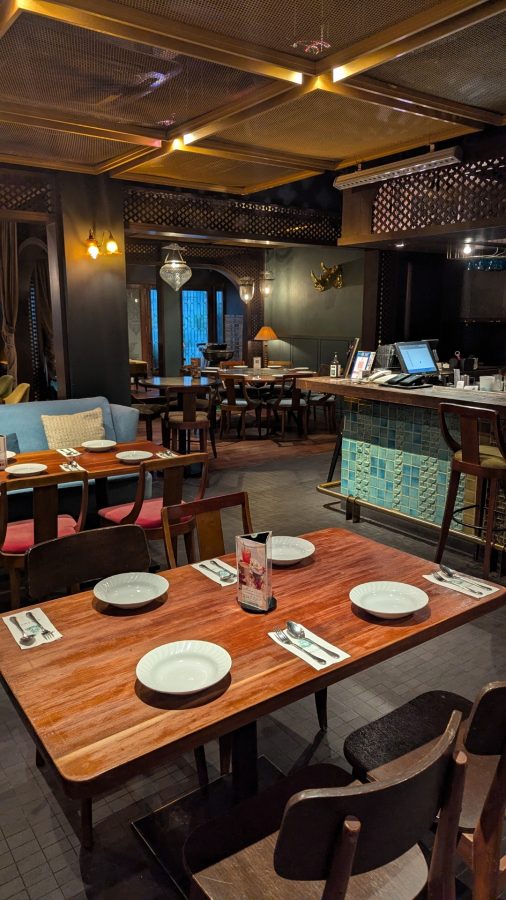
The physical layout of Ekkamai is rather curious. Upon entering the restaurant, if you continued more or less in a straight line, you’d walk right into the kitchen. It’s technically an open kitchen, though not in the normal way – it’s almost as if they forgot to add a wall or a screen of some sort. However, the dining areas, of which there are three (plus the al fresco dining that’s offered outside), are arranged around the kitchen, so you really cannot see the kitchen from any of the dining areas. There’s a sizeable bar, as well, and in the back corner of one of the areas, there’s a lovely water feature. The dining rooms are quite eclectic and very attractive in their design and table placement; not at all a ‘cookie cutter’ approach. We very much appreciated the interplay between the various coloured tiles and hardwood floors, along with smartly placed drapery, cushions, and patterned décor. It all gives a warm, welcoming, and zen-like vibe, and apart from the odd location and exposure of the kitchen (which is easily forgotten once you’re seated), the dining areas are absolutely delightful.
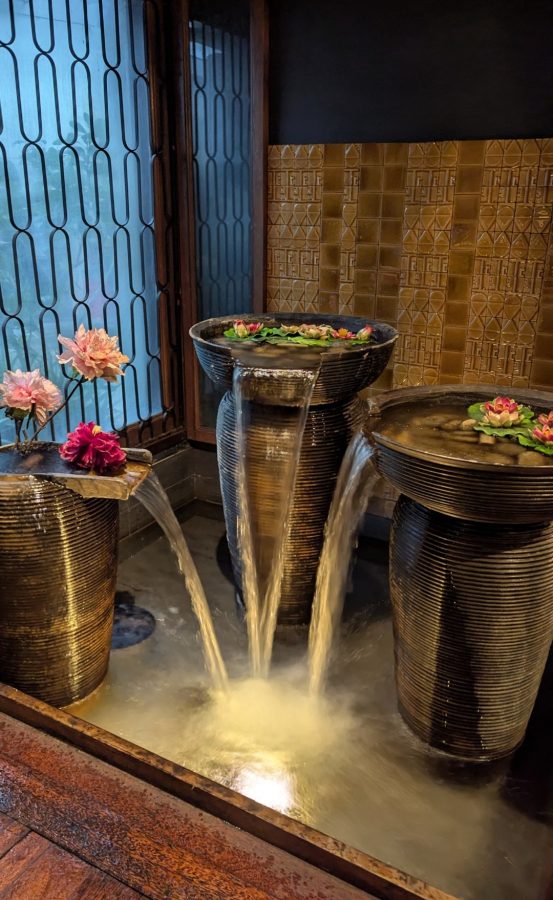
Perusing the menu yielded few, if any surprises. It’s mostly everything you’d expect at a proper Thai restaurant, from pad Thai to pandan chicken and green curry to tom yum. Seafood dishes, rice and noodle dishes, sharing platters, spicy-sour salads, and more all feature here. And that’s just fine with us: There may not be much that’s out of the ordinary, but under the experienced direction of Thai Chef Aya, Ekkamai’s kitchen does a terrific job of preparing, plating, and presenting everything they offer.
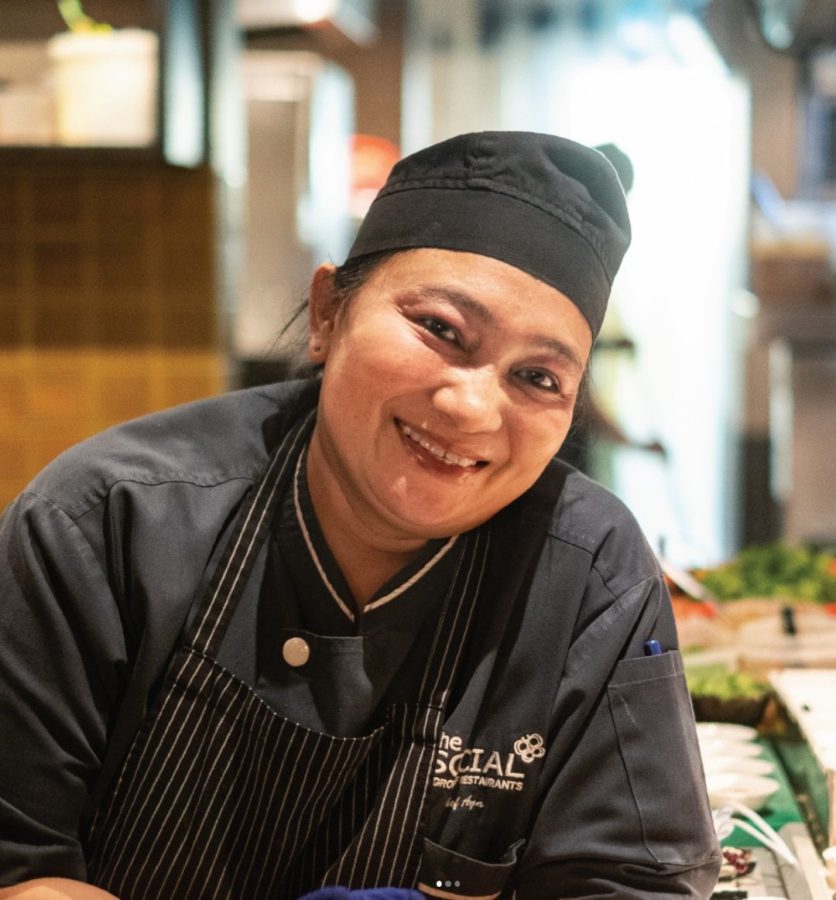
We kicked things off with a trio of starters – Miang Kam (RM21), Thai Fried Squid (RM28), and Pandan Chicken (RM26/five pieces). The always-enjoyable miang kam, a beloved Thai snack food, was arranged and presented beautifully, with all of the fillings and condiments perfect for creating the tasty little DIY parcels in the daun kadok leaves provided. The whole point of miang kam is balancing the core flavours, so you get the salty and savoury notes from the dried shrimp and peanuts, the spicy heat from the chillies and ginger, the sour burst from the bits of lime, and the sweetness from toasted coconut and the syrupy palm sugar-based sauce (which also has fish sauce for a marvellous complexity).
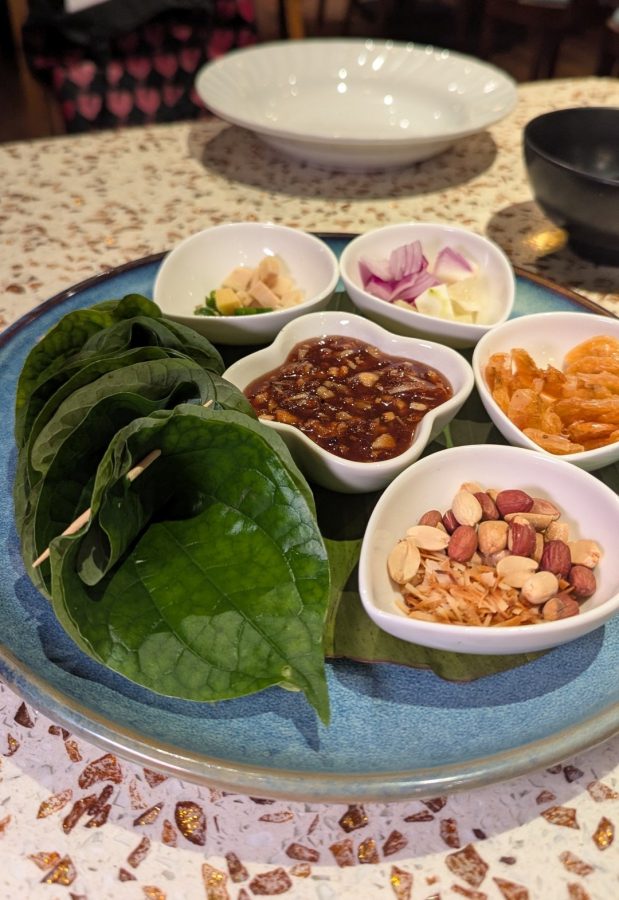
The fried squid, adorned with sliced red chillies and fried curry leaves, was very nice, though some pieces seemed to feature more breading than squid. Still tasty, though. We enjoyed the pandan chicken, though when eating the tender chicken without the dipping sauce, we noticed there wasn’t quite as much flavour as we would have liked. It might have needed a bit more time in the marinade. We appreciated the empty bowl that was delivered alongside the food dish itself to discard the pandan leaves once the parcels were unwrapped. Very few places do this, and the table ends up with strips of charred leaves all over the place. Nice touch!
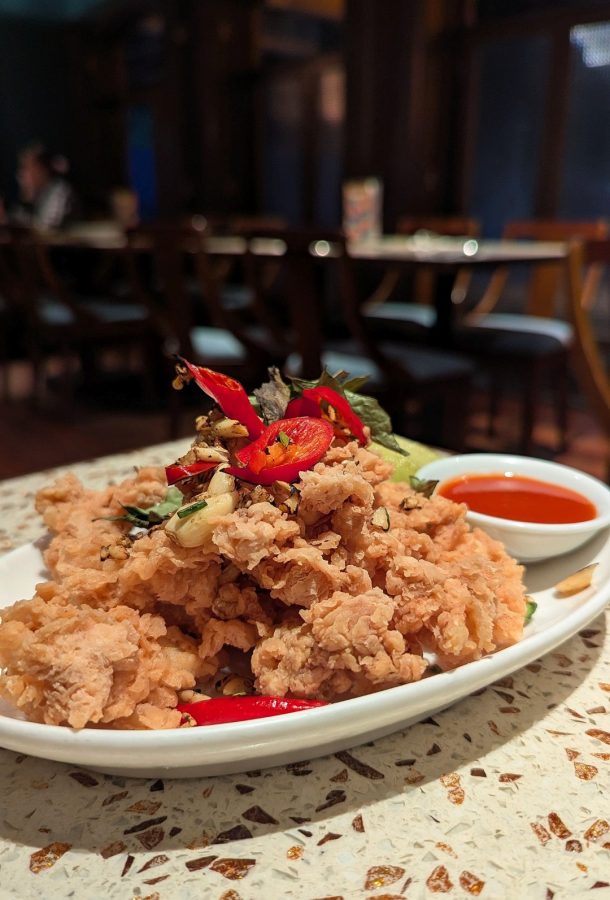
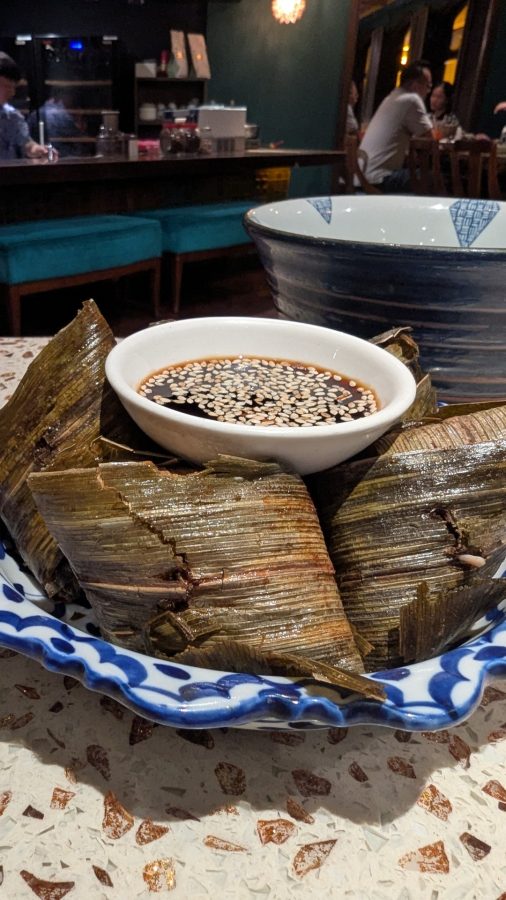
Next we ordered the Tom Kha, Thailand’s iconic coconut and galangal-based soup, likely second in familiarity only to the wildly popular tom yum goong. For the tom kha, diners can choose from chicken, salmon belly, or a mix of seafood for the protein. We opted for chicken, the classic Tom Kha Gai (RM28), and this was one superb dish. Served in a stoneware bowl over a candle-holding base, the soup stayed piping hot throughout and was just enough for two to enjoy. Slightly sweet, slightly tangy, and with a nice spicy punch evolving in the aftertaste, this was one of the best tom kha gai renditions we’ve had in recent memory. On a future visit, we may just have to try the other versions with seafood or salmon belly (RM34 each)!
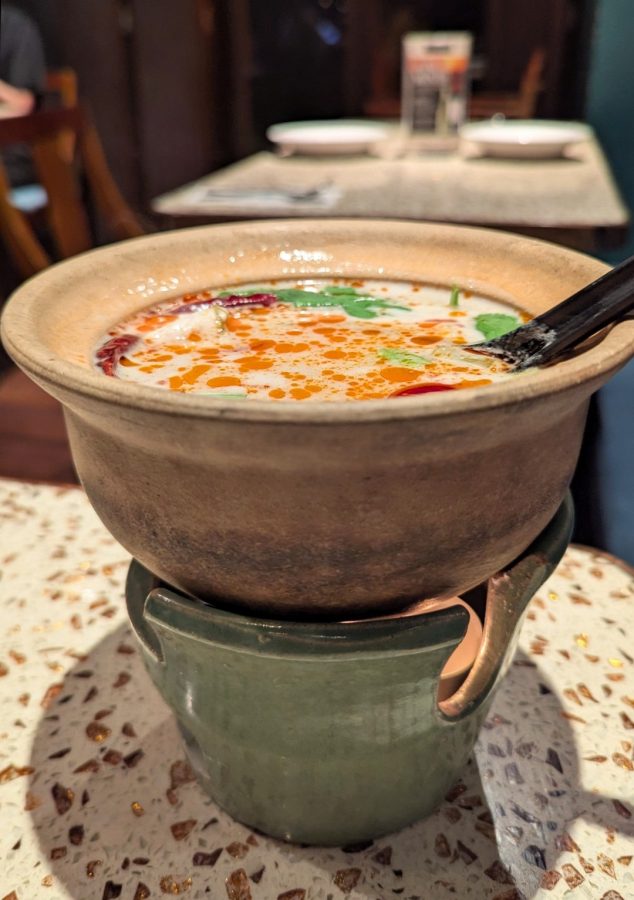
There are plenty of seafood and beef dishes on the menu to tempt diners, and we seriously considered a Thai-style fish or a dish of the beloved pad gaprow (chopped beef and holy basil), but were already starting to fill up, so we instead favoured a lighter Crispy Fish Salad (RM32), comprising a delicately crispy catfish fillet, along with young mango salad. Fresh and tasty, with loads of contrasting flavours and textures, this was another winner. In fact, we enjoyed it so much, we ordered the Crispy Prawn and Pomelo Salad (RM32) midway through the first salad, a variation on the same theme, but with small dried prawns (like we had with the miang kam), chunks of ripe pomelo, some toasted coconut and cashews, and plenty of fresh herbs. Unsurprisingly, this was equally delightful.
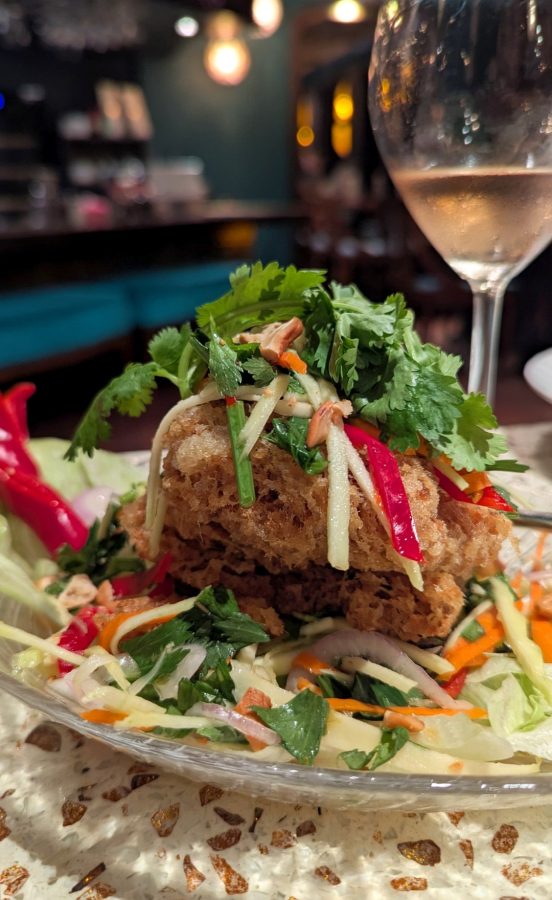
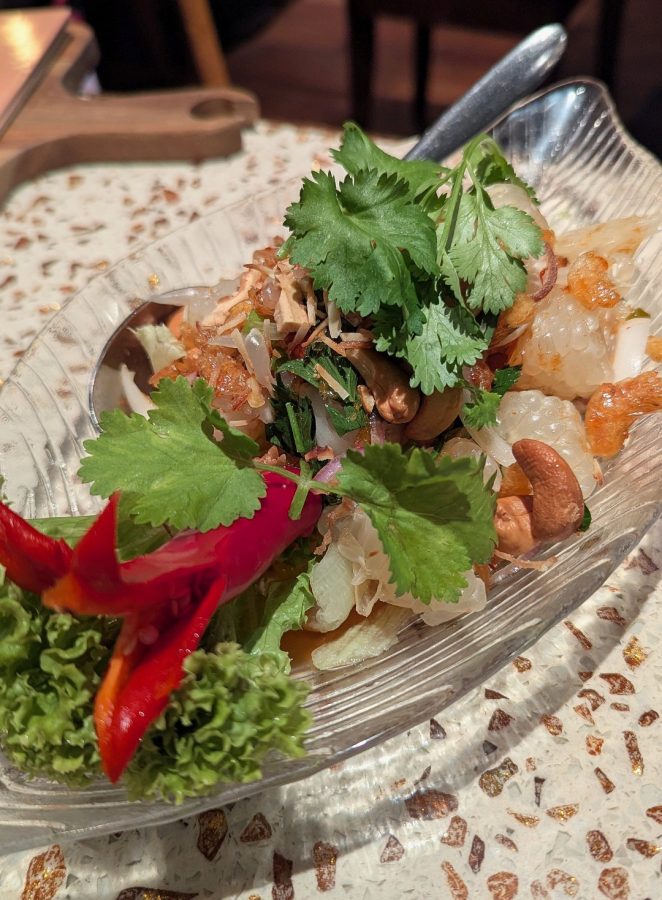
Moving on to the desserts, we were very tempted by the always-good Red Ruby (RM16), which features red-coloured water chestnut pearls, thin slices of jackfruit, and coconut milk over shaved ice, but opted instead for a custom creation at Ekkamai from their special ‘Thai Bingsu’ menu. We selected the Thai Iced Tea variant (RM20), with a large mound of shaved ice made from Thai milk tea, complemented with brown sugar pearls, agar pearls, and sliced almonds, all festooned with a little crown of whipped cream. This was genuinely amazing – the rich creamy flavours of Thai milk tea translating wonderfully to a shaved ice dessert.
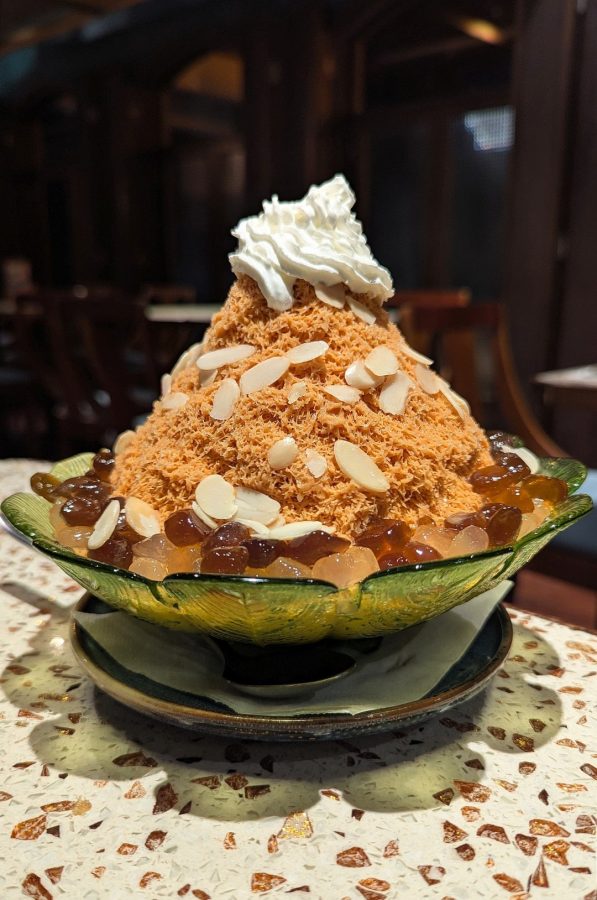
We also couldn’t resist what must be Thailand’s most popular dessert, Mango Sticky Rice (RM20), the fragrant sticky rice complemented by slices of fresh mango and a little boat of sweet coconut cream. This is never a bad choice, but we felt on this occasion that the rice, which wasn’t quite soft and sticky enough, could have benefitted from a couple of extra minutes of cooking to help its texture along.
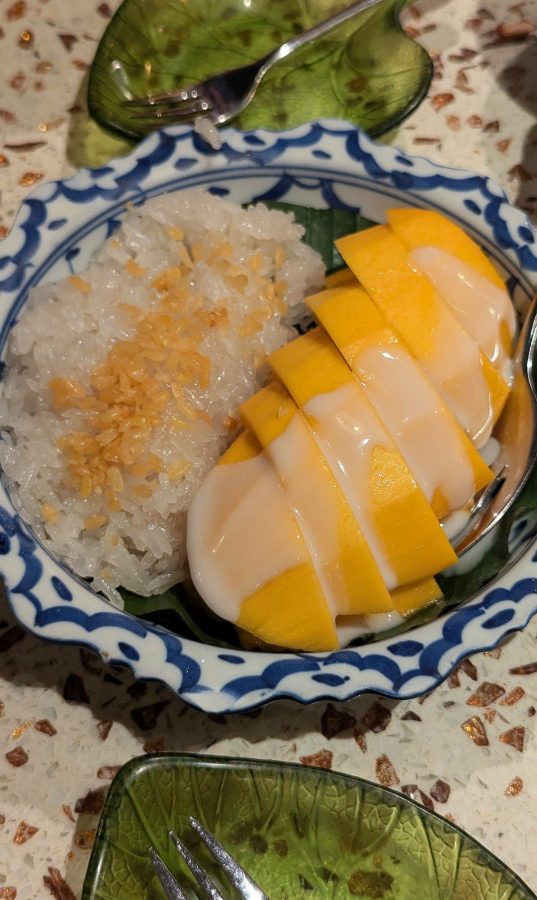
Ice-cold beer is a fine accompaniment to Thai food, and Ekkamai serves draught Tiger (RM18/glass) and Guinness (RM23). Offered by the bottle, diners can choose Heineken (RM23), Tiger (RM19), and the Thai favourite, Singha (RM23).
Spirits, cocktails (RM35), martinis (RM35), coolers, coffees, teas (including iced Thai milk tea, RM12), juices, sodas, and kombuchas provide a very comprehensive beverage list (even iced Milo dinosaur is listed at RM12).
The wine list provides a small but satisfying selection of wines, including some house wines under The Social’s own label. Thai cuisine’s vibrant medley of heat, citrus, and herbaceous flavours can be a little tricky to pair with wine, but with the right wine, the interplay between spice, sweetness and acidity can elevate both the food and the wine. Ekkamai offers six whites, four reds, a rosé, a Moscato, and a sparkling wine (Prosecco) to enjoy with the chef’s dishes.
The Social group has sourced its own wines and bottled them under their house label for serving in restaurants such as Ekkamai. Both the house Sauvignon Blanc and Cabernet Sauvignon are from the estate of Miguel Torres in Chile. One gets the impression that the brief to the winemakers at Torres was to produce wines of high acidity, moderate alcohol, and minimal oak, as these styles refresh without overwhelming the food.

The house red and white are available by the glass (RM27) or the bottle (RM130), and both are offered at a modest discount during happy hour, which, unfortunately, is not clearly stated on the menu. Purchases of three wines by the glass or three pints of Tiger beer by the glass are also offered at promotional prices.
The other white wines on the list include two Sauvignon Blancs (Chile and New Zealand), a Pinot Grigio (Italy), a Chardonnay (Argentina), and a blended white from Tuscany. For a fuller-bodied white, Gewürztraminer is a stellar match. This style is represented by a Spanish blended white wine that exhibits lychee, rose petal, and spice notes. It resonates well with Thai dishes that include lemongrass, galangal, and fresh herbs. This wine is best served at around 12°C to bring out the wine’s expressive nose and silky texture.
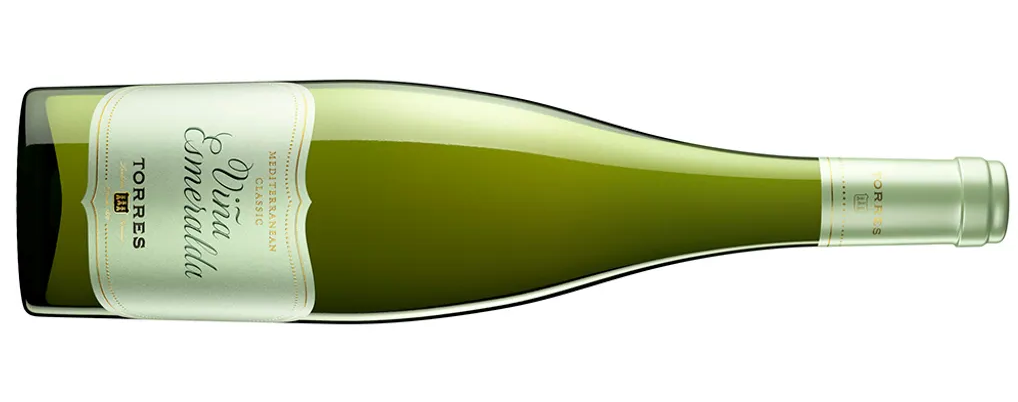
Rosé is a misunderstood style and not something most diners would select to accompany spicy food. However, we were impressed that an Italian rosé made the cut at Ekkamai. Its bright acidity and red berry notes pair well with stir-fried dishes like pad Thai or spicy green papaya salad.
Interestingly, there is no Riesling, which we think is a great go-to wine for spicy food. A lightly off-dry German Riesling, particularly from the Mosel, has sufficient acidity to cut through creamy coconut curries and just the right touch of sweetness to temper chilli heat. If one were served, we feel its citrus and floral notes would harmonise beautifully with several dishes on the menu.
There are four reds on offer, including the house red from Chile, plus an Australian Shiraz, a French Pinot Noir, and a Spanish Crianza from La Rioja (Tempranillo grapes). We sampled the Chilean Cabernet Sauvignon and agreed that it was a more than acceptable house-pouring wine full of fresh fruitiness and with a balanced oakiness.
And there you have it. Ekkamai’s menus for food and beverages are both quite comprehensive, though not overwhelming. We loved the friendly service, the pleasant ambiance, and the appealing presentation of every dish we ordered. Even though it’s a pork-free restaurant, you’re still getting authentic Thai cooking, and if that’s what you’re craving, Ekkamai will definitely satisfy! The simple truth, however, is that we could only try so many things in a single meal, and thus will have to return – perhaps several more times – to savour more choices from the inviting menu!
Ekkamai Thai Kitchen @ Plaza Batai
8 Jalan Batai
Bukit Damansara
50490 Kuala Lumpur
W: www.ekkamai.com.my
T: 603.2011 1029
